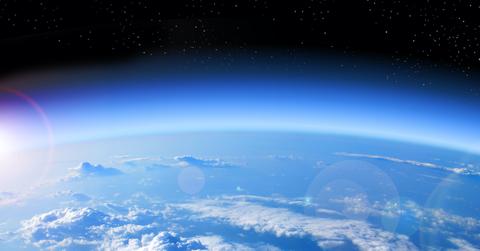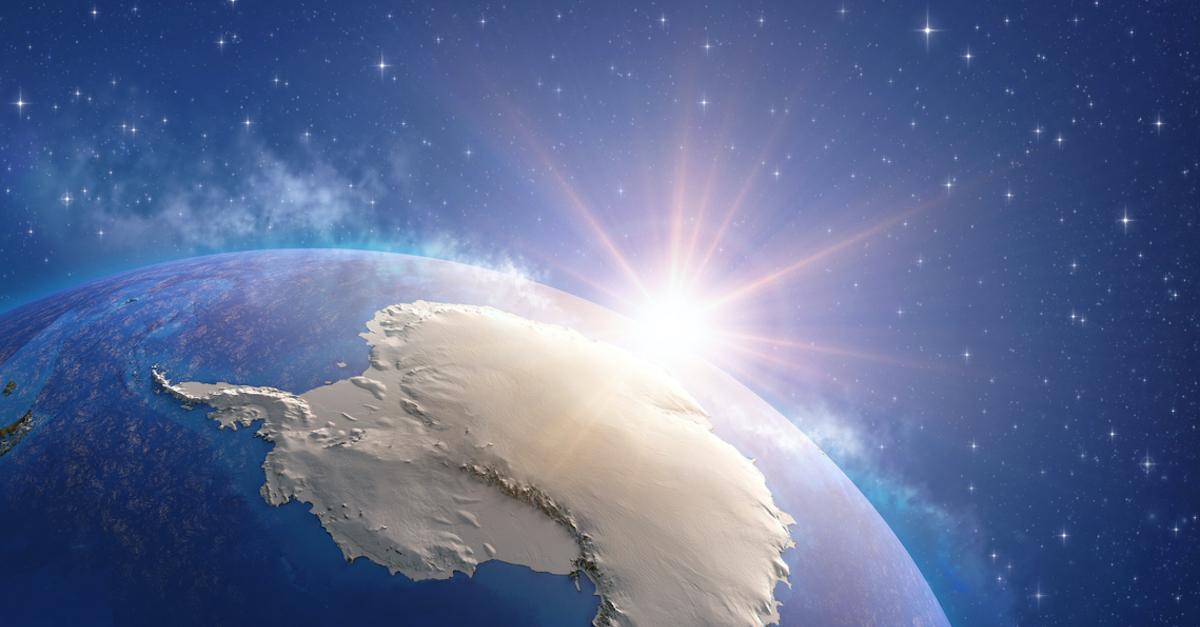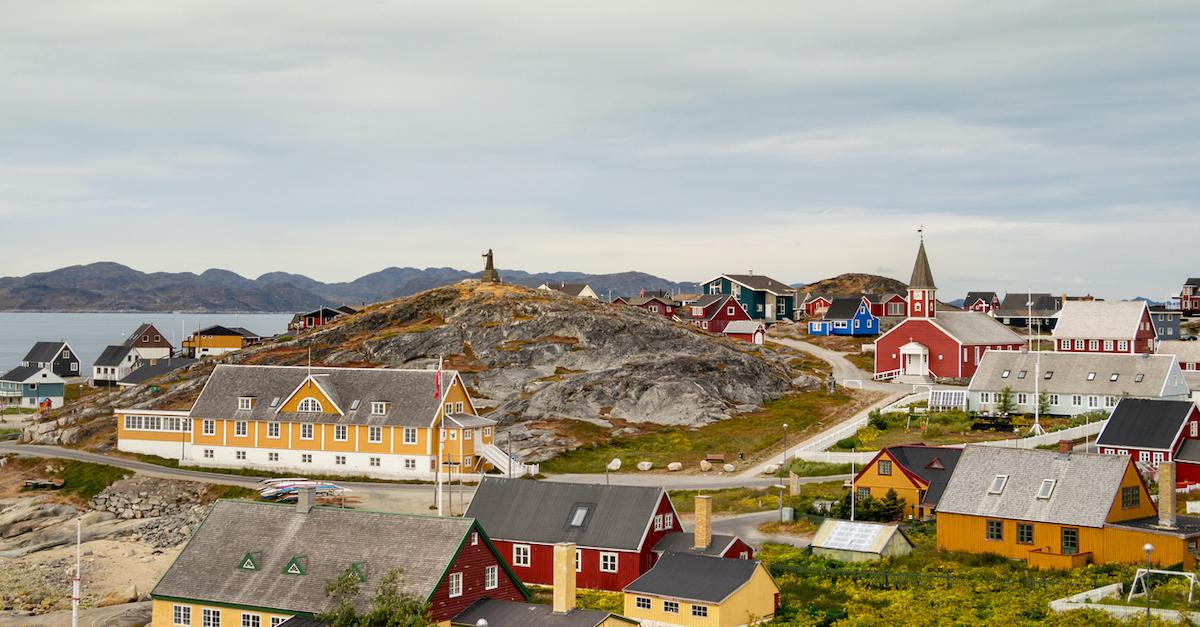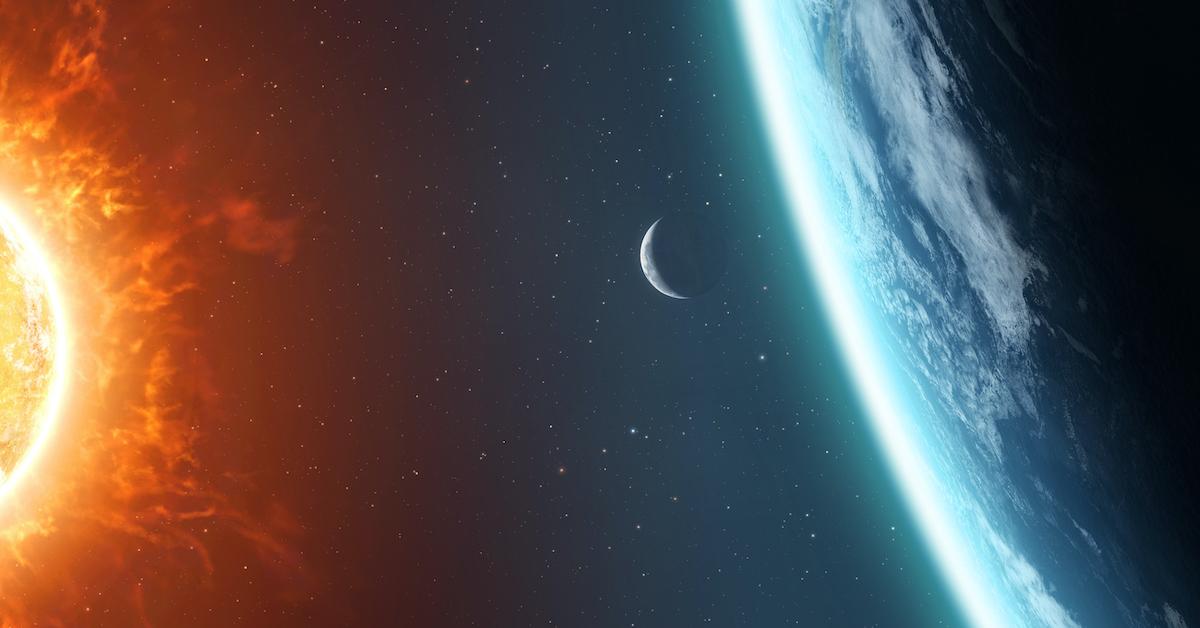Here's Why Scientists Believe the Hole in the Ozone Layer Over Arctic Has Closed
Updated April 30 2020, 7:20 a.m. ET

It's safe to say the ozone layer has had it rough over the last several years — due to harsh chemicals released from increased human activity and careless industrial practices, the ozone layer has been gradually depleting in the upper atmosphere. As a result, according to Britannica, increased UV radiation reaches the earth's surface, which leads to various health problems among humans, as well as global warming.
At the end of March 2020, a hole in the ozone layer opened up over the Arctic, and it just recently disappeared. Vincent-Henri Peuch, director of the Copernicus Atmosphere Monitoring Service, said it best — "the hole is principally a geophysical curiosity," and needless to say, we're pretty mind-blown about this natural phenomenon, as well, so stay tuned for more on the elusive ozone layer hole in the Arctic.

The hole supposedly didn't pose a huge risk to people on Earth.
Scientists believe that the ozone layer's unusually large hole opened up due to unseasonably cold temperatures, as well as massive polar vortexes, which trapped cold air in the atmosphere above the North Pole in late March for many consecutive weeks, according to Live Science. These are somewhat common in the autumn above the South Pole, but conditions like these in the Northern Hemisphere are apparently quite rare.
The hole was consistently tracked from outer space and at ground-level by Copernicus' Atmospheric Monitoring Service (CAMS), according to The Guardian, but apparently, it wasn't believed to cause any danger to human life on Earth, as long as it stayed up North. If it moved down to Greenland, however, scientists said it could have caused excruciating sunburns.

The closing supposedly has nothing to do with reduced human activity.
CAMS believes that the hole in the ozone layer was entirely due to the strong Arctic polar vortexes, according to CNN, and that it actually had nothing to do with increased human activity. With that, they also believe that reduced human activity due to the coronavirus lockdowns did not cause it to close back up.
"COVID19 and the associated lockdowns probably had nothing to do with this... It's been driven by an unusually strong and long-lived polar vortex, and isn't related to air quality changes," CAPS said on Twitter.
Honestly, we're just relieved the hole didn't migrate South, and that Greenland is no longer in dire need of SPF.
The ozone layer is on a long road to recovery.
Every four years, UN Environment, NASA, NOAA, the World Meteorological Organization, and the European Commission track the ozone's conditions, and they recently noticed it's on the mend. For the last 20 years, researchers have noticed the upper stratospheric ozone layer thickening by 1 to 3 percent per decade, except above Antarctica, where it appears to be thinner than anywhere else. This is due to human action, as we've taken a stance against using ozone-depleting substances.
Scientists believe the ozone above the northern hemisphere and mid-latitude could be fully healed by 2030, the southern hemisphere might follow in the 2050s, and the polar regions could be entirely healed 2060... we just have to do our part to fix it.

Although it didn't pose much of a risk, the hole in the Arctic's ozone layer was seriously shocking. Regardless, though, we're glad its finally closed — hopefully the atmosphere continues to heal itself, while humanity attempts to do so as well.